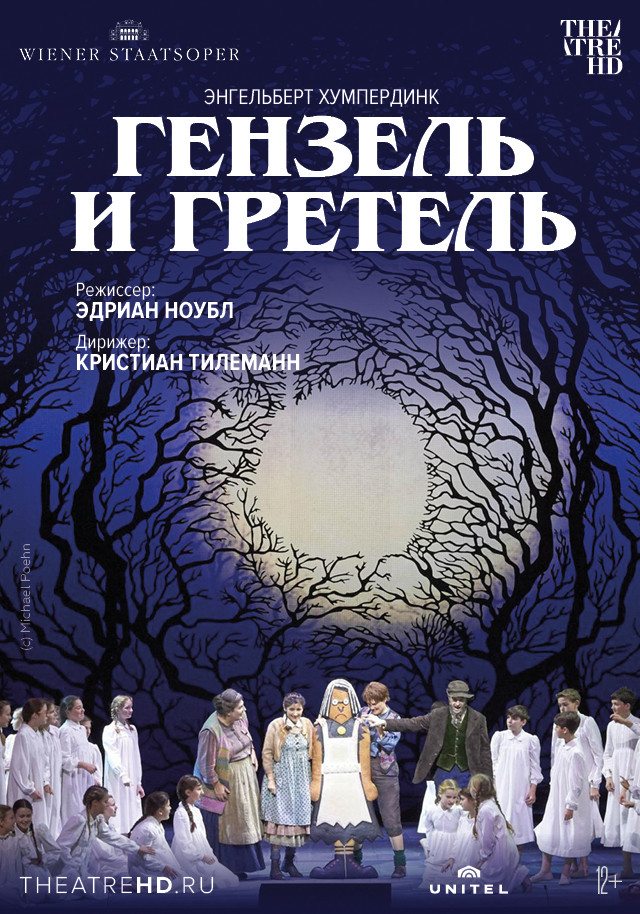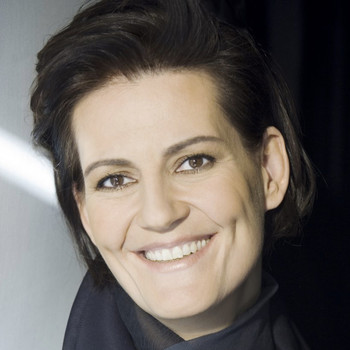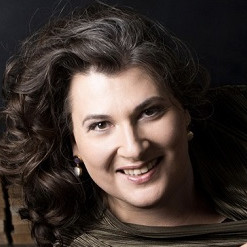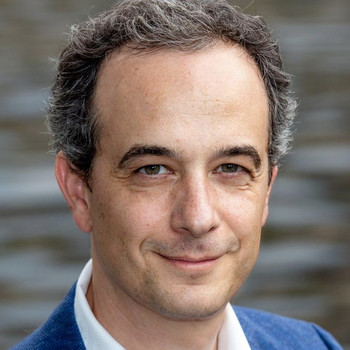OVERTURE
London, Christmas circa 1890. A Victorian family gathers happily in the living room around the Christmas tree. The father surprises everyone with a mys- terious, new device: a laterna magica, which projects all kinds of unfamiliar and wonderful pictures on the wall and also opens the door to a strange, fairy tale world ...
ACT 1
Instead of carrying out the chores assigned to them, tormented by hunger the siblings Hänsel and Gretel pass the time in the wretched hut that is their home by singing and dancing. They eagerly await the evening and with it the return of their parents, because today there will finally be something to eat before they go to bed: the children hope that their Mother will make a rice pudding using the milk given to them by a neighbour. But when the Mother finally comes home, the mood changes abruptly. Furious that Hänsel and Gre- tel have spent their time playing together rather than making brooms and knitting stockings, she rushes over to the children to give them a beating. In doing so, she accidentally knocks the jug with the milk in it off the table. Hänsel’s snickering at her clumsiness, the jug fragments on the floor and the spilled milk cause the Mother to lose her temper, and she sends the children out into the nearby forest to pick strawberries. Left alone, she laments the po- verty and hunger her family suffers and drops wearily off to sleep. Awakened by her cheery, somewhat drunken husband, who for once has been able to sell all his brooms and has bought a big supply of various groceries with the proceeds. But their joy is short-lived. Dismayed that his children have been sent out alone, the Father tells his wife about the man-eating Witch who lives in Ilsenstein, a particularly dark and notorious part of the forest. Filled with concern, the parents rush out of the hut to find Hänsel and Gretel before nightfall and bring them home.
ACT 2
While Hänsel picks strawberries, filling his basket to the brim, Gretel makes a wreath. Happy that this time they have done as their Mother asked, they be- come absorbed in all kinds of games and forget to go home on time. To make matters even worse, before they realize what they are doing, the two of them gradually eat all the strawberries they had collected. Horrified, they set out to look for more, but notice full of trepidation that they have got lost in the eve- ning darkness of the forest. The good Sandman then appears and sprinkles sand in their eyes. Huddled together, Hänsel and Gretel go to sleep after saying their evening prayers. In a beautiful dream, fourteen angels hover around them, and they have a reassuring sense of death and new life.
The next morning, Hänsel and Gretel are awakened by the Dew Fairy and discover the Witch’s gingerbread house. When Hänsel breaks off a piece, the Witch’s voice is heard from within the house. However, since nothing more threatening happens, the children start to nibble at the house, until the Witch emerges. At first she seems to be friendly, but she soon reveals her true colours: she casts a spell on Hänsel and Gretel and locks Hänsel in a cage, where she plans to fatten him up. In exuberant anticipation of eating the children, the Witch clambers onto her broomstick and for some time flies ecstatically through the air. After her ride, she tries to persuade Gretel to look into the oven. Her plan to push the unsuspecting girl into the oven and bake her into gingerbread does not succeed; warned by her brother, Gretel pretends to be stupid and asks the Witch to show her how to look into the oven. Impatiently, the Witch agrees to Gretel’s request and leans far into the oven. At that moment, Hänsel and Gretel push her in, and she perishes miserably. Hardly has the Witch died than the many gingerbread men standing around the house turn into boys and girls. They all fell into the Witch’s trap and were turned into gingerbread in the oven: but now the spell is broken. Hänsel and Gretel stroke the children and with the help of the magic wand break the last spell. The grateful children dance joyously around their rescuers. A little later, Hänsel and Gretel’s parents find the happy group, having been searching for their children through the night. Grateful and filled with joy they sing together: “When our need is at its gre- atest, the Lord our God holds out his hand.”







.jpg)
.jpg)
.jpg)
.jpg)
.jpg)
.jpg)
.jpg)
.jpg)
.jpg)
.jpg)
.jpg)
.jpg)
.jpg)
